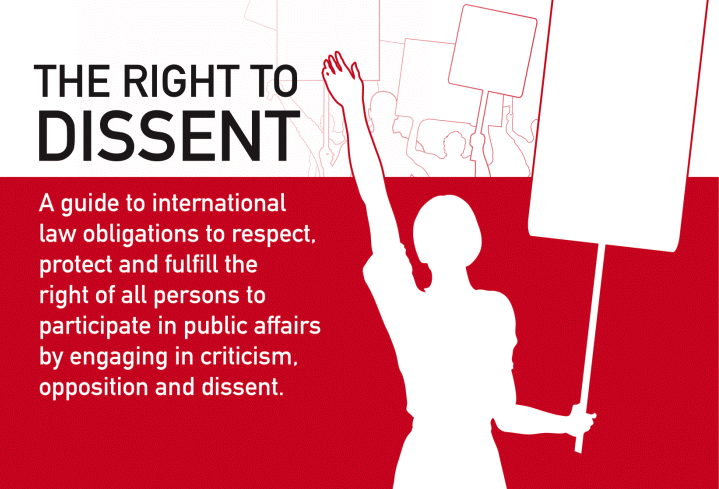‘The Right to Dissent is an important addition to the literature on dissent, and on many of its most important constituent elements,’ writes Pearl Eliadis, practicing human rights lawyer and academic, in the foreword. ‘By offering a thorough analysis of international human rights law, it will enable practitioners and citizens to claim their rights and participate more effectively in the project of democracy.’
Dissent involves the exercise of individual and collective rights of expression, association, assembly, and participation in public affairs. These freedoms encompass rights to receive and impart information, inspire debate, and influence decision-making about issues of public concern. Article 7 of the Declaration on Human Rights Defenders explicitly recognises that ‘Everyone has the right, individually and in association with others, to develop and discuss new human rights ideas and principles and to advocate their acceptance’. Despite legal duties imposed on States to respect, protect and fulfil the rights to dissent and protest, these rights are routinely misunderstood and increasingly violated, with dissenters facing dire consequences including arrest, imprisonment, displacement, disappearance, and death.
‘Freedom of expression, freedom of association and the right to peaceful assembly are often compartmentalised and discussed individually, with little regard to their interdependence,’ writes Ms Eliadis. ‘This unifying theme of dissent distinguishes The Right to Dissent from other publications.’
This unique guide provides activists, human rights defenders, jurists, NGOs, corporate actors, and government authorities with the tools and knowledge necessary to ensure rights, protect the lives and liberty of dissenters, enable meaningful participation in public life, and promote the rule of law.
The Right to Dissent was authored by Lois Leslie for LRWC and has been produced for public use. The Right to Dissent is available on Amazon in print and will soon be available as an eBook on Amazon and other sites. A PDF is also available on the Lawyer’s Rights Watch Canada site. The Right to Dissent has been released on a Creative Commons license. Everyone is free to copy, distribute, and display this publication and to make derivative works, with appropriate credit given to Lawyers’ Rights Watch Canada.




